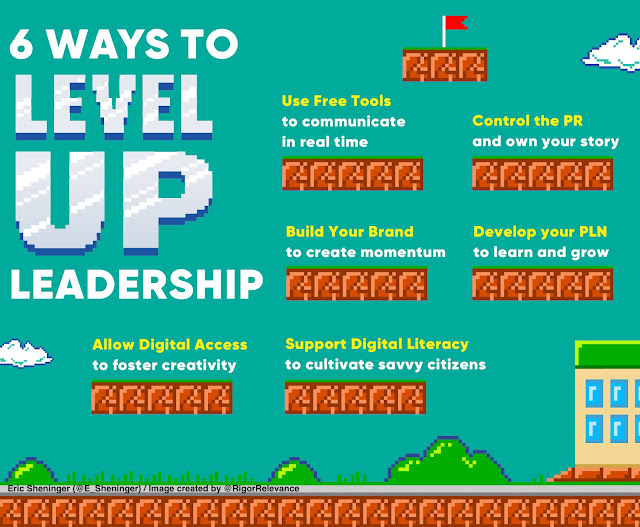Like most kids, past, and present, I loved playing video games. During my very early years, Atari was the best and only option. My parents eventually bought an Apple IIe where we needed to use floppy disks to load any meaningful content, which added to our gaming experience. However, once the Nintendo was invented and stationed in our basement, we toiled away immersed in classics such as Super Mario Brothers, Donkey Kong, and Mike Tyson’s punchout. Our goal was simple…acquire skills through analysis, practice, and watching others to reach new or more challenging levels. I can still feel the rush when success was achieved and the bitter disappointment when I came up short. In the case of the latter, this became motivation to press forward.
We can take lessons learned from gaming and apply them to our own practice. If we don’t push ourselves to grow and get better, it becomes increasingly difficult to empower those we work with to do the same. You get what you model, for better or for worse.
If leaders don’t get It, change rarely happens.
In a world where technology is embedded in so many facets of society, it is incumbent upon leaders to look for ways to level up. Social media is, and still represents, one of the most powerful ways to move a learning culture forward and engage with stakeholders. For those who are still not seeing any value or are apprehensive by having their toe in the water instead of jumping all the way in, there is no better time than the present to make a change. I encourage you to shift your mindset in order to create schools that work better for kids and, in the process, establish relevance as a leader, no matter your position.
In Digital Leadership, I presented an array of research and evidence-based strategies that can pave the way for any leader to level up. I revisit some of these strategies as both a reminder and health-check for you to reflect on where you are, but more importantly, where you would like to be in the near future.
- Strategically utilize an array of free tools such as Twitter, Facebook, Instagram, and Tik Tok to communicate real-time information that stakeholders can access on any device. Consistency aligned with intent is vital.
- Become the storyteller-in-chief and take control of your public relations. If you don't share your story, someone else will, and you then run the chance that it will not be the one you want to be told. Stop reacting to public relations situations you have limited control of and begin to be more proactive. When supplying a constant stream of positive news, you will help to mitigate any negative stories that might arise.
- Any leader can harness the power of a brandED by telling, not selling, in order to build powerful relationships with stakeholders and empower learning like never before. A brand presence is no longer restricted to the business world as everyone has access to the tools at their fingertips to do this in a way that won’t break the bank. Simply communicating and telling your story with social media tools can accomplish this and organically develop your positive brand in the process.
- If you are the brightest and most innovative person in the room, you are in the wrong room! Develop or enhance your Personal Learning Network (PLN) to connect with experts, peers, and practitioners across the globe to grow professionally through knowledge acquisition, resource sharing, engaged discussion, and to receive feedback.
- If you are an administrator, work to loosen up filtering policies and allow educators to use digital tools that can engage learners, unleash their creativity, and enhance learning. As many schools know, CIPA does not require many of these to be blocked. That’s a local decision.
- There is a golden opportunity to teach kids about digital responsibility and positively address their social and emotional needs when digital tools are used with purpose across the curriculum.
In a disruptive world, societal change happens fast, and this has a ripple effect on education. Leveling up your leadership flies in the face of the status quo, and “that’s the way we have always done it” to constantly move schools in a better direction. By consistently chasing growth, you not only learn how to become a better leader, but you also empower those who you serve in the process.
Together we can continue to be the change we want to see in education.

Today technology is important for listening to new trends in education. Science and math video games are necessary tools for practicing academic skills to achieve higher learning standards. For instance, students can communicate with teachers on their progress before report cards are mailed or can edit actual writing assignments after peer evaluation.
ReplyDelete